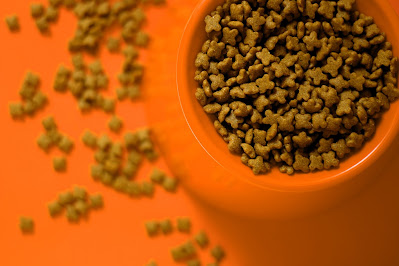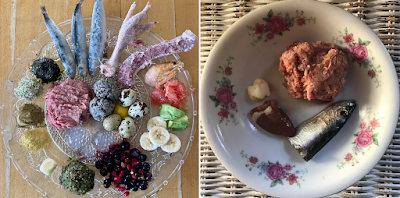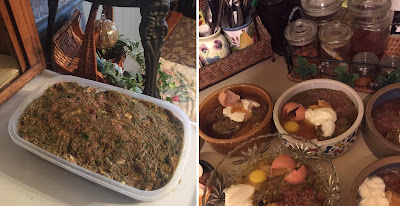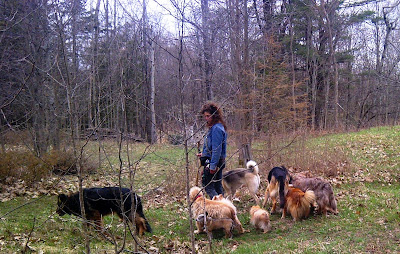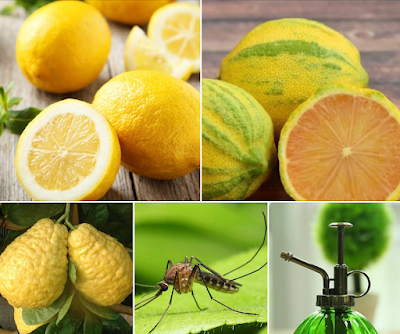Is the Prescription Dog (Cat) Food Sold in Veterinarian’s Offices Good or Bad for Your Dog (Cat)? Hill’s Prescription Diet, Royal Canine Veterinary Diet, Purina Veterinary Diet, etc.
Prescription Dog Food and Cat Food Products Do NOT support health
Species Appropriate Raw Food or Gently Cooked Food DOES support health
★ 12.5 min read
In this article:
- Marketing of Prescription Pet Food
- What you May Not Know About Your Veterinarian's Knowledge of Pet Nutrition
- What You Need to Know This To Make An Informed Decision
- Owned By Large Corporations That Profit From Illness, Not Health
- Prescription Pet Food is NOT Better Than Other Dry, Canned or Wet Pet Food Products
- Formulated With Biased 'Science'
- AAFCO Assurance Does Not Mean Healthy or Safe
- The Truth Is
- Veterinary Prescription Dog and Cat Food Ingredients That Cause Serious Harm
- Examples of Veterinarian Prescription Pet Food Products
- A Species Appropriate Natural Approach, Curative Diet and Healing
1.0 Marketing of Prescription Pet Food
Prescription pet food companies spend a considerable amount of money on:
- In-depth and intense marketing campaigns.
- Campaigns that are backed-up by skewed and biased data.
- Campaigns that rely on the fact that...
What they are taught in university is based on material provided by the big pet food companies.
1.1 What
You May Not Know About Your Veterinarian’s Knowledge of Pet Nutrition
Veterinarians, how much do they really know about diet and nutrition? The answer may surprise you...
First
– Did you know that the standard 4-year long university course required to
become a veterinarian only includes about 50 hours of course time spent on pet
nutrition? That is equivalent to about 1 week of study over the span of 4
years.
Second
– During that week of study a large portion and often 100% of the material studied (research material, textbooks, study aids and even the course material) is sponsored by and often supplied to the university by the big-name pet food manufacturers such as Royal Canine, Hill's and Purina?
While at first glance this might seem OK, it's not.
The material prepared by these companies is very biased - not objective, not truthful and not factual.
While at first glance this might seem OK, it's not.
The material prepared by these companies is very biased - not objective, not truthful and not factual.
Thirdly
– While studying veterinary sciences at the university the pet food manufacturer offers pet food products at a greatly discounted
price or for free to the student for his/her pet;
Fourthly - Upon graduation veterinarians are given financial incentive to endorse and stock the product of the company that supplied their university with ‘study’ material and food freebies.
Fourthly - Upon graduation veterinarians are given financial incentive to endorse and stock the product of the company that supplied their university with ‘study’ material and food freebies.
So,
having had:
- All of about 1 week worth of learning about nutrition;
- And the material studied was provided by a pet food company;
- Just how much perspective (non-biased understanding) and comprehensive depth of knowledge does the average veterinarian have?
- Well, in most cases very little and what they do have may be very biased in favour of a specific company’s product (i.e. Hill’s Science Diet, Royal Canine, Purina, etc.).
This lack of knowledge is evidenced by the dog and cat food sold by many veterinarians.
The
food purchased by pet owners from their Veterinarians is sold at an elevated
price. I have clients that (prior to working with me) were paying $100 or
$150 for bag of prescription 'food'.
On average, ‘prescription diets’ contain more toxic ingredients than many of the standard dry, wet and canned food products sold in pet stores.
A
good understanding – even a basic understanding, of what compromises good
nutrition is an essential building block for companion animal health.
- Minor and major ailments is a strong immune system.
- Fleas, ticks, other parasites is a strong immune system.
But
what happens when the food that your dog or cat is eating contains:
- Multiple species inappropriate ingredients, including: rice, oatmeal and other grains, beans (lentils, chickpeas, soy, etc), potatoes and other starchy carbohydrates.
- Condemned denatured meat and fats.
- GMO corn and GMO soy.
- Synthetic chemical-based preservatives and additives that are toxic and carcinogenic.
- Feed supply (not human-food grade editable) sourced ingredients additionally contaminated with:
- Aflatoxins.
- Genetically Modified ingredients.
- Endocrine disrupters.
- Immune system cannot function properly.
- Brain cannot function at optimum capacity.
- Cardiovascular system is weakened.
- Liver, pancreas, spleen and kidney are forced to work over-time to try to eliminate toxins that build-up faster than they can be eliminated, and worse.
- Endocrine system cannot function properly.
- Muscular-skeletal system is at heightened risk of injury and chronic conditions including injury, arthritis, osteoporosis.
I see many new client dogs that have been diagnosed with renal issues and put on prescription dry and canned food. The prescription food does not treat the kidney issues. The prescription food does cause additional serious health issues.
Poor quality ingredients and intense processing of ingredients ensure that your dog and cat will not receive the nutrition needed to improve and sustain health.
The species inappropriate food components, toxins and carcinogens in prescription pet food are harmful to a healthy animal. For an animal with health issues the toll on long-term health is significant.
2.0 You Need to Know This To Make An Informed Decision About your Dog and Cat's Diet
If your veterinarian suggests you put your dog or cat on a prescription pet food diet, for example, dry, canned, wet food or treats by:
- Royal Canine
- Hill’s Science Diet
- Purina
- Rayne
- etc.
Say 'NO thank you'.
Prescription dry, canned food products and 'treats' are a nightmare for your dog and cat's health.
Prescription dry, canned food products and 'treats' are a nightmare for your dog and cat's health.
2.1 Owned By Large Corporations That Profit From Illness, Not Health
Almost
all veterinary clinics in e.g., North America the UK are (now) owned
by Mars Inc. Yes. Mars, the chocolate bar, chewing gum company. Mars has six manufacturing divisions: chocolate, drinks, (highly processed) food, Pet 'Care' Wrigley's, Symbioscience. Cancer causing products.
Mars Pet Care Owns:
- These prescription pet food companies:
- IAMS
- Royal Canine
- 48 other pet food brands.
Mars Pet Care also owns the following pet clinics and hospitals:
- Banfield
- Blue Pearl
- VCA
- Hill's and Hill's Science Diet
Colgate Palmolive, maker of thousands of toxic, cancer-causing personal care products and household cleaning products.
Nestle Owns:
- Purina (Purina Pet Care)
Yes. Nestle, another candy bar company and manufacturer of highly processed cancer-causing 'food' for humans.
2.2 Prescription pet Food is NOT Better Than Other Dry, Canned or Wet Pet Food Products
All dry, canned and wet pet food products cause health issues and conditions in dogs and cats.
However, prescription pet food is formulated with the worst quality ingredients.
It is equivalent to purchasing the cheapest pet food from the grocery store, tractor supply store of pet food store.
The only difference is the cost. Prescription pet food is considerably more expensive to buy.
The 'scientific' formulations are based on skewed and biased data
gathering. Data is eliminated that indicates the ingredients, formulation and end-product has issues.
The manufacturers and sellers (your veterinarian, pet stores, etc.) rely on the fact that you, the consumer know nothing about nutrition, species appropriate food, GMO, toxins and carcinogens.
Products are marketed with words and phrases selected to capture your trust, but use of the words and phrases is unregulated and misleading.
2.4 AAFCO Certification Does Not Mean Healthy or Safe
AAFCO certification is NOT an assurance of quality. AAFCO promotes use of health damaging ingredients. AAFCO is focused on profit, not your animal's health.
Learn more about AAFCO and AAFCO certification here.
Highly processed pet food diets, dry food (kibble, biscuits), wet and canned food harms health. There are no exceptions.
2.5 The Truth Is
Prescription
pet food is designed to supress symptoms and create a cascade of additional health issues. These diets are NOT curative.
The diets are not designed to treat or remedy the
root cause of a health issue or condition.
The diets are not designed to
improve overall health and wellness.
Prescription pet food diets are insidious, in the way they're marketed and how they're designed to erode health and well-being.
Veterinary prescription diets are not the answer to illness - by their very nature it is impossible for prescription diets to support health and well-being. They can mask a symptom, they cannot cure, heal or support health.
A species appropriate raw or gently cooked diet that is
properly tailored to suit a dog or cat's personal situation will treat
and help remedy health issues and conditions without creating other
health issues.
3.0 Veterinary Prescription Dog and Cat Food Ingredients That Cause Serious Harm
The
following provides examples of some extremely health-harming ingredients that
are used in prescription pet food products. These examples represent a few of the many health deteriorating components used in prescription pet food.
Below
the list are examples of some of these prescription diet food products with
SOME of the health and life-threatening ingredients highlighted.
Chicken Meal, Chicken By-Products, Chicken Fat, Pork Fat
What Is It?
Animal protein, feathers, beaks, rendered fat, bone and other parts sourced from D4 animals.
It is the carcass of dead, diseased, disabled, dying animals that are processed with toxic denaturing chemicals.
The 'meat' in your dog and cat's veterinarian prescription food is condemned denatured poultry.
Learn more about this health destroying prescription pet food ingredient, you'll be shocked by what you learn.
- Go to this article.
Why Is This Used In Prescription Pet Food?
- It's plentiful and cheap.
- It ensures your animal's health will decline.
Issues
- Toxic
- Carcinogenic.
- Health-destroying.
Human food grade animal protein, learn more:
- Go to this article.
Brewers
Rice
A by-product (left-over) from the processing of rice for human consumption. A grain derivative.
Why Is This Used In Prescription Pet Food?
Plentiful,
cheap and bulks up the food at little cost to the manufacturer.
Issues
Issues
- Rice, Brewer's Rice and other rice derivatives are not species appropriate food for dogs and cats.
- A common allergen for dogs and cats.
- Toxic, contaminated with heavy metals, synthetic chemical arsenic, pesticides, herbicides, fertilizers.
Dogs and cats should never have starchy carbohydrates.
Dogs
can benefit from a small amount of species appropriate vegetables and
greens in the daily diet. Cats are obligate carnivores and as such do
not require vegetables. Cats can have cat grass.
To learn more:
- Go to this article.
Corn
The seed of the corn plant, it is a grain.
It is a species inappropriate food for dogs and cats.
Why Is This Used In Prescription Pet Food?
Corn is a readily available and very inexpensive filler.
Issues
Why Is This Used In Prescription Pet Food?
Corn is a readily available and very inexpensive filler.
Issues
- Not a species appropriate food.
- It is a common allergen for dogs and cats.
- It is contaminated with heavy metals, glyphosate and other synthetic chemical pesticides, herbicides and fertilizers.
- Most corn used in the manufacturing of pet food is grown from Genetically Modified (GMO) Round-up Ready (Agent Orange – a nerve gas and a pesticide) seeds
- GMO corn is proven to cause the growth of tumors, destroy gut health, endocrine system health, immune system health, kidney health.
- Go to this article.
Appropriate Health Supporting Alternative
Dogs and cats should never have starchy carbohydrates.
Dogs
can benefit from a small amount of species appropriate vegetables and
greens in the daily diet. Cats are obligate carnivores and as such do
not require vegetables. Cats can have cat grass.
To learn more:
- Go to this article.
Menadione Sodium Bisulfite and its variations
Menadione , Sodium Bisulfate, Meadione Sodium Bisulfite, or (K3) is a
synthetic vitamin K derivative.
Why Is This Used In Prescription Pet Food?
It
is readily available and inexpensive.
Issues
Appropriate Health Supporting Alternative
Why Is This Used In Prescription Pet Food?
Issues
- Toxic – to kidneys, liver, mucous membranes.
- Repeated or prolonged exposure can produce damage to target organs.
- Carcinogen.
- Mutagenic.
Appropriate Health Supporting Alternative
For dogs, fresh, properly prepared:
- Blueberries, Broccoli, Brussels Sprouts, Collard Greens, Kale, Kelp, Parsley, Spinach, Swiss Chard.
For cats, cat grass (wheat grass, barley grass).
Powdered Cellulose
Powdered cellulose is made from wood pulp.
Why Is This Used In Prescription Pet Food?
Why Is This Used In Prescription Pet Food?
- Powdered cellulose is a species inappropriate, inexpensive fibre.
- It increases the volume of the food.
- Has no nutritional value.
- There are much better forms of fibre however by using powdered cellulose the pet food manufacturer can save up to 30% of the cost of using better ingredients.
Species appropriate:
- Raw meaty bones (dogs and cats).
- Vegetables and greens (for dogs, not cats).
- Cat grass for cats.
Go to this article.
Soy and Soy Derivatives
It
is inexpensive and readily available.
Issues
Issues
- Soy beans are a species inappropriate food that cause a wide range of health issues and condition sin dogs and cats.
- It is a common allergen for dogs and cats.
- It is contaminated with heavy metals, glyphosate and other synthetic chemical pesticides, herbicides and fertilizers.
- Most soy used in the manufacturing of pet food is grown from Genetically Modified (GMO) Round-up Ready (Agent Orange – a nerve gas and a pesticide) seeds
- GMO soy is proven to cause the growth of tumours, destroy gut health, endocrine system health, immune system health, kidney health.
Appropriate Health Supporting Alternative
Tapioca is derived from the cassava bean.
Why Is This Used In Prescription Pet Food?
A synthetic chemical preservative.
Why Is This Used In Prescription Pet Food?
It is:
Human food grade animal protein, learn more:
- Go to this article.
Tapioca
Tapioca is derived from the cassava bean.
Why Is This Used In Prescription Pet Food?
- Tapioca is readily available and inexpensive.
- It
is used to increase the volume of the food product.
- It is a species inappropriate carbohydrate, that contributes to health issues.
- Contains no nutrients.
Human food grade animal protein, raw meaty bones.
Learn more:
- Go to this article.
TBHQ
A synthetic chemical preservative.
Why Is This Used In Prescription Pet Food?
It is:
- Used to stop fat from further rancidification, (the fats used in prescription pet food are rancid).
- Used to mask (cover-up) the 'unpleasant' odor of the resulting rancid pet food.
- Readily available and very inexpensive.
Issues
TBHQ is a chemical based toxic, carcinogenic preservative.
TBHQ is a chemical based toxic, carcinogenic preservative.
Learn more about the serious health issues caused by TBHQ.
Your dog or cat's health issue should be treated and remedied with a species appropriate diet tailored to suit her requirements.
A species appropriate diet eliminates the need for preservatives.
Vegetable Oil, Canola Oil, Cotton Seed Oil,
Safflower Oil, Soybean Oil, Mixed Tocopherols
These are fats (omega fatty acids).
Why Are These Used In Prescription Pet Food?
Why Are These Used In Prescription Pet Food?
- They ARE readily available and very inexpensive.
Issues
Dogs and cats require omega fatty acids in the diet to support overall health, HOWEVER, these oils are NOT species appropriate omega fatty acids.
Dogs and cats require omega fatty acids in the diet to support overall health, HOWEVER, these oils are NOT species appropriate omega fatty acids.
- Prescription pet food manufactures purchase previously used oils from restaurants, food manufacturing facilities, etc.
- The oils have been used to cook food.
- The used oil is then sold to pet food manufacturers.
- The used oil is poured into pails, placed at the back of the restaurant or food manufacturing facility, and picked-up by the pet food manufacturers.
- These vegetable oils are derived from GMO crops.
- These vegetable oils have high levels of pesticide residue.
- Carcinogenic.
- Toxic.
Appropriate Health Supporting Alternative
Wheat Gluten
Purina
Veterinary Diets HA Hypoallergenic® Canine Formula
Hill's® Prescription Diet®
Hill's® Prescription Diet®
Go to this article.
Wheat
Is a grain and a starchy carbohydrate.
Is a grain and a starchy carbohydrate.
Why Is This Used In Prescription Pet Food?
It is an inexpensive filler.
Used to increase the volume of a food product at minimal cost to the manufacturer.
Issues
Issues
- Wheat is not a species appropriate food for dogs and cats.
- Wheat is a starchy carbohydrate with a high glycemic index and high glycemic load. Wheat is quickly converted by the body into sugar, which spikes insulin levels, spikes Omega-6 fatty acid levels leading to metabolic issues and inflammatory disease.
- Wheat is high in fructan – fructan can ferment in the GI tract, causing an overgrowth of bad bacteria (candida) that in-turn causes yeast infections.
- The wheat used in pet food is not always screened for aflatoxins – a naturally occurring fungus that causes liver and kidney damage and liver cancer
- The what used in prescription pet food is contaminated with glyphosate.
- Wheat can cause or worsen:
- Anemia
- Arthritis
- Cancer
- Heart Disease
- Elevated blood-sugar levels
- IBS – Irritable Bowel Syndrome
- Inflammation of brain cells
- Increase in hunger
- Weight gain
- Cause other health issues and conditions.
Dogs and cats should never have starchy carbohydrates.
Dogs can benefit from a small amount of species appropriate vegetables and greens in the daily diet. Cats are obligate carnivores and as such do not require vegetables.
To learn more:
- Go to this article.
Wheat Gluten
What Is It?
Wheat Gluten is the protein part of a wheat kernel (seed).
Wheat Gluten is the protein part of a wheat kernel (seed).
Why Is This Used In Prescription Pet Food?
An inexpensive form of protein.
An inexpensive form of protein.
Issues
Appropriate Health Supporting Alternative- Wheat is not a species appropriate food
- Wheat gluten has a high glycemic index
- Wheat is quickly converted by the body into sugar, which spikes insulin levels, spikes Omega-6 fatty acid levels
- Wheat Gluten can cause or worsen:
- Anemia.
- Arthritis.
- Elevated blood-sugar levels.
- IBS – Irritable Bowel Syndrome.
- Inflammation of brain cells.
- Increase in hunger.
- Weight gain .
- Cause other health issues and symptoms.
Human food grade animal protein, raw meaty bones.
Learn more:
- Go to this article.
4.0 Examples of Veterinarian Prescription Pet Food Products
The following provides examples to assist you in understanding why prescription pet food diets are terrible. Above, I discussed some of the health harming ingredients, however these also contain many other harmful components. The examples provided below include ingredients known to:
- Cause food sensitivity and allergies.
- Cause behavioural issues.
- Cause minor and major illness including cancer.
- Decrease quality of life and life span.
Purina
Veterinary Diet - Example
Purina
Veterinary Diets HA Hypoallergenic® Canine Formula
Ingredients (Dry)
Starch, hydrolyzed soy protein isolate, vegetable oil,
calcium phosphate, partially hydrogenated canola oil preserved
with TBHQ, powdered cellulose, corn oil,
potassium chloride, vegetable gums (gum arabic, guar
gum), choline chloride, DL-Methionine, salt, magnesium oxide, lecithin,
taurine, zinc sulfate, ferrous sulfate, Vitamin E supplement, manganese
sulfate, niacin, calcium carbonate, Vitamin A supplement, copper sulfate,
calcium pantothenate, thiamine mononitrate, riboflavin supplement, garlic oil,
Vitamin B-12 supplement, pyridoxine hydrochloride, folic acid, Vitamin D-3
supplement, calcium iodate, biotin, menadione
sodium bisulfite complex (source of Vitamin K activity), sodium
selenite. I-4571
Royal
Canine Veterinary Therapeutic Formula (Diet) - Examples
Royal
Canine Veterinary Therapeutic Formulas – Calm Dry
‘formulated
to support dogs in situations associated with stress and anxiety’Ingredients
Brewer’s
Rice,
Chicken Meal, Corn, Chicken Fat, Wheat Gluten,
Wheat,
Chicory, Natural Flavour, Salt, Vegetable Oil,
Fish Oil, Calcium Sulphate, Potassium Chloride, Sodium Silico Aluminate
(Zeolite), Fructo-Oligosaccharides, Sodium Tripolyphosphate, DL-Methionine,
Taurine, Choline Chloride, Vitamins [DL-Alpha-Tocopherol (Source of Vitamin E),
Inositol, Niacin, L-Ascorbyl-2-Polyphosphate (Source of Vitamin C), D-Calcium
Pantothenate, Biotin, Pyridoxine Hydrochloride (Vitamin B6), Riboflavin
(Vitamin B2), Thiamine Mononitrate (vitamin B1), Vitamin A Acetate, Folic Acid,
Vitamin B12 Supplement and Vitamin D3 Supplement], Dried Hydrolyzed Casein,
Marigold Extract, Trace Minerals (Zinc Proteinate, Zinc Oxide, Ferrous
Sulphate, Manganese Proteinate, Copper Proteinate, Copper Sulphate, Manganous
Oxide, Calcium Iodate and Sodium Selenite), L-Tryptophan and Rosemary.
Naturally preserved with Mixed Tocopherols
and Citric Acid.
Note
This product also contains ingredients that:
- Spike insulin levels;
- Create low serotonin levels, and;
- Cause inflammation of brain cells;
- Low Serotonin levels are associated with anxiety;
- Inflammation of brain cells is linked to behavourial problems;
- Low PS levels are associated with low levels of Omega-3, low PS levels are associated with anxiety;
- Soy and soy by products (vegetable oil, mixed tocopherols) contain endocrine disruptors which can lead to thyroid problems which is associated with anxiety and behavioural problems.
Royal
Canine Veterinary Therapeutic Formulas – Diabetic Dry
‘formulated to assist in the management of diabetes mellitus’
Ingredients
‘formulated to assist in the management of diabetes mellitus’
Ingredients
Chicken
meal, barley, corn gluten meal, powdered cellulose, wheat gluten, tapioca, dried beet pulp, chicken fat, natural flavor, fish
oil, psyllium seed husk, potassium chloride, salt, fructooligosaccharides,
choline chloride, taurine, vitamins [dl-alpha tocopherol (source of vitamin E),
L-ascorbyl-2-polyphosphate (source of vitamin C), biotin, D-calcium
pantothenate, vitamin A acetate, niacin, pyridoxine hydrochloride (vitamin B6),
thiamine mononitrate (vitamin B1), vitamin B12
supplement, riboflavin (vitamin B2), folic acid, vitamin D3
supplement], trace minerals [zinc proteinate, zinc oxide, ferrous sulfate,
manganese proteinate, manganous oxide, copper sulfate, calcium iodate, sodium
selenite, copper proteinate], L-carnitine, marigold extract (Tagetes erecta
L.), rosemary extract, preserved with natural mixed tocopherols
and citric acid.
Royal
Canine Veterinary Therapeutic Formulas – Anallergenic Dry
‘formulated to assist in the management of severe adverse food reactions'
Ingredients
‘formulated to assist in the management of severe adverse food reactions'
Ingredients
Corn
starch,
hydrolyzed poultry by-products aggregate, coconut oil, soybean oil, natural flavors, potassium phosphate, powdered
cellulose, calcium carbonate, sodium silico aluminate, chicory, L-tyrosine,
fructooligosaccharides, fish oil, L-lysine, choline chloride, taurine,
L-tryptophan, vitamins [DL-alpha tocopherol (source of vitamin E), inositol,
niacin, L-ascorbyl-2-polyphosphate (source of vitamin C), D-calcium
panthotenate, biotin, pyridoxine hydrochloride (vitamin B6), riboflavine
(vitamin B2), thiamine mononitrate (vitamin B1), vitamin A acetate, folic acid,
vitamin B12 supplement, vitamin D3 supplement], DL-methionine, marigold extract
(Tagetes erecta L.), histidine, trace minerals [zinc proteinate, zinc
oxide, ferrous sulfate, manganese proteinate, copper proteinate, copper
sulfate, manganous oxide, calcium iodate, sodium selenite], rosemary extract,
preserved with natural mixed tocopherols and citric acid.
Hill's® Prescription Diet® - Examples
Hill's® Prescription Diet®
r/d® Canine Weight Loss-Low Calorie with Chicken
Ingredients
Whole
Grain Corn,
Corn Gluten Meal, Chicken By-Product Meal, Powdered Cellulose, Soybean
Mill Run, Chicken Liver Flavor,
Chicken, Dried Beet Pulp, Soybean Meal,
Lactic Acid, Soybean Oil, Caramel
Color, L-Lysine, Potassium Chloride, DL-Methionine, Iodized Salt, Vitamin E
Supplement, Choline Chloride, vitamins (L-Ascorbyl-2-Polyphosphate (source of
vitamin C), Vitamin E Supplement, Niacin, Thiamine Mononitrate, Vitamin A
Supplement, Calcium Pantothenate, Biotin, Vitamin B12 Supplement, Pyridoxine
Hydrochloride, Riboflavin, Folic Acid, Vitamin D3 Supplement), minerals
(Manganese Sulfate, Ferrous Sulfate, Zinc Oxide, Copper Sulfate, Calcium
Iodate, Sodium Selenite), Taurine, L-Carnitine, preserved with Mixed Tocopherols & Citric Acid,
Phosphoric Acid, Beta-Carotene, Rosemary Extract.
Hill's® Prescription Diet®
r/d® Canine Mobility
Ingredients
Whole
Grain Corn, Chicken By-Product Meal, Flaxseed, Soybean Mill Run, Brewers Rice, Soybean Meal,
Pork Fat (preserved with mixed tocopherols
and citric acid), Chicken Liver Flavor,
Powdered Cellulose, Fish Oil, Lactic
Acid, Potassium Chloride, L-Lysine, Calcium Carbonate, Choline Chloride,
Iodized Salt, DL-Methionine, Vitamin E Supplement, vitamins
(L-Ascorbyl-2-Polyphosphate (source of vitamin C), Vitamin E Supplement,
Niacin, Thiamine Mononitrate, Vitamin A Supplement, Calcium Pantothenate,
Biotin, Vitamin B12 Supplement, Pyridoxine Hydrochloride, Riboflavin, Folic
Acid, Vitamin D3 Supplement), L-Threonine, Taurine, Soy Lecithin, Glucosamine Hydrochloride, minerals (Ferrous
Sulfate, Zinc Oxide, Copper Sulfate, Manganous Oxide, Calcium Iodate, Sodium
Selenite), L-Tryptophan, L-Carnitine, preserved with Mixed Tocopherols and Citric Acid, Chondroitin Sulfate,
Phosphoric Acid, Beta-Carotene, Rosemary Extract.
Note
- Chicken liver flavour, and other flavoring is toxic and carcinogenic.
5.0 A Species Appropriate Natural Approach, Currative Diet and Healing
A species appropriate diet properly tailored to suit your individual dog or cat's situation is creative. This diet treats symptoms, addresses root cause of illness, and supports health and well-being. It does not mask symptoms and create additional health issues. This is true for common and rare health issues and conditions.
Below, examples of common health issues that veterinarians push and sell prescription diets for, but can and should be treated and remedied with a species appropriate diet...
Acid Reflux
Go to this article.
Bladder and Kidney Stones and Crystals
Go to this article.
Diarrhea
Go to this article.
Food Hypersensitivities (intolerance and allergies)
Go to this article.
Urinary Tract Infections
Go to this article.
Holistic Diet, Nutrition, Wellness Services Tailored to Your Individual Dog and Cat
For information about my holistic diet, nutrition and wellness services, visit my holistic wellness services page.
Maintain good health | Address acute and chronic health issues | Pre and post surgery support and recovery
My holistic wellness services are available worldwide via video consultation.
🌎 USA | Canada | UK | Europe | Australia | New Zealand | Asia | South and Central America | Africa | UAE
📱FaceTime | Facebook | Skype | WhatsApp
To set-up your holistic wellness consultation get in-touch via email, go to my contact me page.
Holistic Behavioral Services for Your Dog
For information about my holistic behavioral services, visit my holistic behavioral services page.
For dogs of all ages, sizes and breeds.
My behavioral services are available worldwide via video consultation.
🌎 USA | Canada | UK | Europe | Australia | New Zealand | Asia | South and Central America | Africa | UAE
📱FaceTime | Facebook | Skype | WhatsApp
To set-up your holistic behavioral session get in-touch via email, go to my contact me page.
Affiliations to Companies
✓ None.
✓ I don't sell food, supplements, or other products.
✓ I'm not aligned with any companies.
Article and graphics by Karen Rosenfeld.









